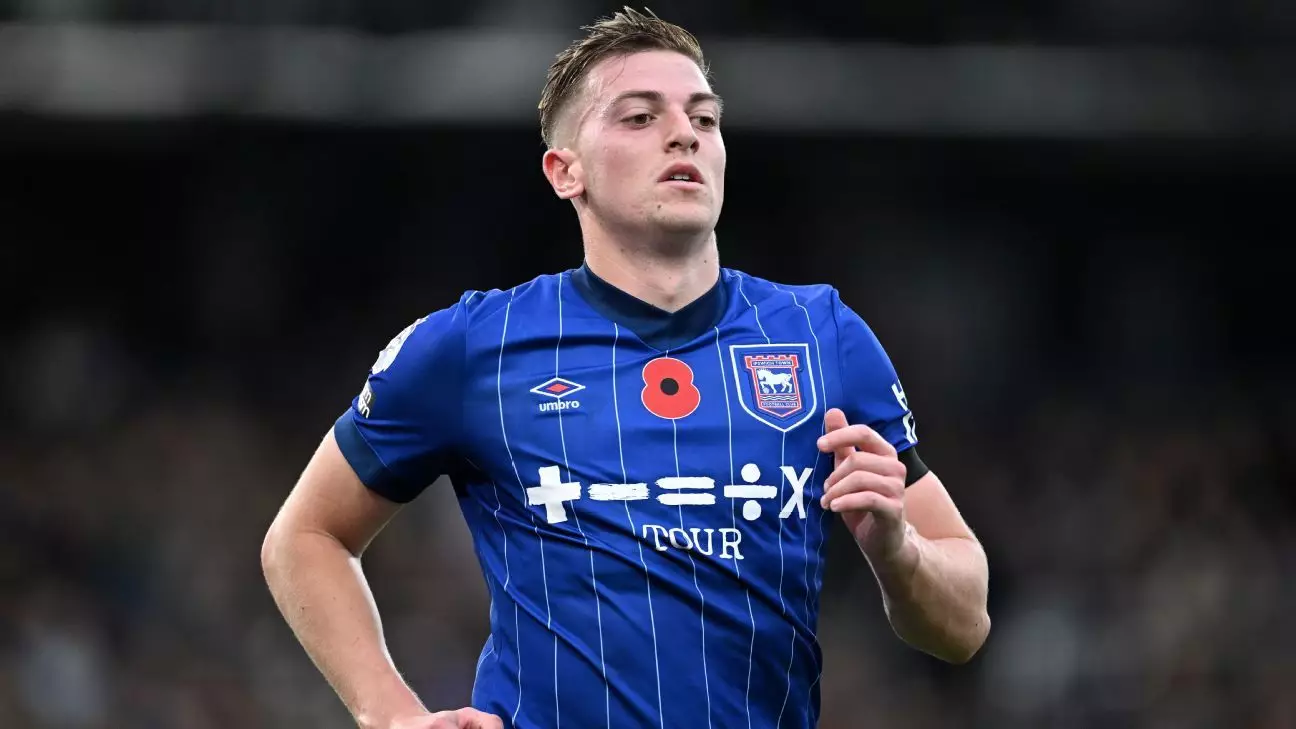The football transfer market is a relentless ecosystem where emerging talents are scouted, clubs engage in strategic maneuvers, and fan loyalties are tested. The current landscape reveals intriguing narratives as clubs like Chelsea and Manchester United eye young prospects while established powers such as Real Madrid and Bayern Munich pursue established talents with vigor. In this analysis, we dissect some of the latest developments, outlining how transfers shape the club’s future and individual player trajectories.
One of the standout performers this season has been Liam Delap, a striker currently on the books at Ipswich Town. His meteoric rise, characterized by robust performances that have resulted in six goals in just twelve league appearances, has captured the attention of football giants Chelsea and Manchester United. Both clubs view him as a potential investment in future success. However, Manchester City could complicate matters. Having inserted a buy-back clause into Delap’s contract during his transfer to Ipswich, City retains leverage over potential suitors and is poised to re-acquire the striker should interest escalate.
This scenario highlights a critical aspect of player transfers—strategic foresight. By ensuring a clause that allows the re-signing of Delap, City not only protects its investment but also maintains a safety net. Delap’s development in the top flight may ultimately position him as a valuable asset for City or a prolific goal scorer for rival clubs, depending on how they decide to act.
Florian Wirtz’s name is emerging as a coveted one on the transfer scene, attracting attention not just from Real Madrid but from Bayern Munich as well. The outcome of Xabi Alonso’s potential move to Madrid could significantly influence Wirtz’s decision-making process. If the charismatic coach takes over at Los Blancos, his rapport with the young midfielder could serve as a pivotal factor in Wirtz’s choice of club.
Bayern’s strategy of reuniting Wirtz with Jamal Musiala speaks to a broader trend within football where clubs seek to create a nucleus of homegrown talent, a tactic that has often proven successful in maintaining competitiveness both domestically and in European competitions. The murmurs of a possible blockbuster transaction, especially involving Bayern’s willingness to offload key players to accommodate Wirtz, underline the shifting sands of the football transfer market.
Challenges for PSG’s Kolo Muani
Concurrent with the focus on young talent, established players are also scrutinized closely. Paris Saint-Germain’s Randal Kolo Muani is reportedly on RB Leipzig’s radar, yet negotiations may encounter obstacles, primarily due to PSG’s stance on player departures. As a club unwilling to entertain a cheap sale, PSG’s stringent requirements create a bottleneck for prospective suitors like Leipzig, who ideally seek permanent options over temporary loans.
The intricate dynamics of player value and club needs create complexities in transfers. While Kolo Muani’s talent is undeniable, his transfer is emblematic of how financial strategies and squad depth influence player movement in the modern game.
Marseille and Juventus: A Battle for Fagioli
Juventus midfielder Nicolò Fagioli is another player generating buzz, with Marseille leading the charge for his signature. While competition appears from Napoli and PSG, Marseille’s ambitions to secure the 23-year-old suggest a determined effort to bolster their squad. The reported asking price of €25 million to €30 million reflects the escalating market rates for promising talent, further complicating negotiations.
This scenario reflects the reality that clubs like Juventus stand to gain not only from player sales but also from cultivating young talents who can thrive in competitive environments. Fagioli’s potential move could alter dynamics withinSerie A as well as propagate a ripple effect throughout Europe.
Meanwhile, Wolves are contending with their ambitions of retaining key player Matheus Cunha, particularly amidst interest from rival Premier League clubs. Their proactive approach to offer a lucrative new contract underscores the necessity for clubs to ensure their stars remain committed, especially as they maneuver through potential transfer windows filled with enticing offers for their talents.
This focus on contract negotiations reveals an often-overlooked dimension of the transfer market; clubs must balance day-to-day operations, fostering a stable environment, and planning for future recruitment drives, as illustrated by Wolves’ intent to strengthen their squad while keeping hold of existing assets.
As football’s transfer landscape continues evolving, it is characterized by a tapestry of strategic planning, player development, and the overarching quest for competitive advantage. Clubs are no longer merely vying for established talents; they are increasingly looking towards the youth and the strategic integration of players into their systems, making this an intensely competitive sphere. As teams prepare for impending windows, the stories and transactions unfolding in the coming months will undoubtedly reshape the footballing tableau, influencing both player careers and club outcomes for years to come.

